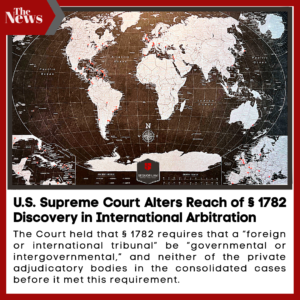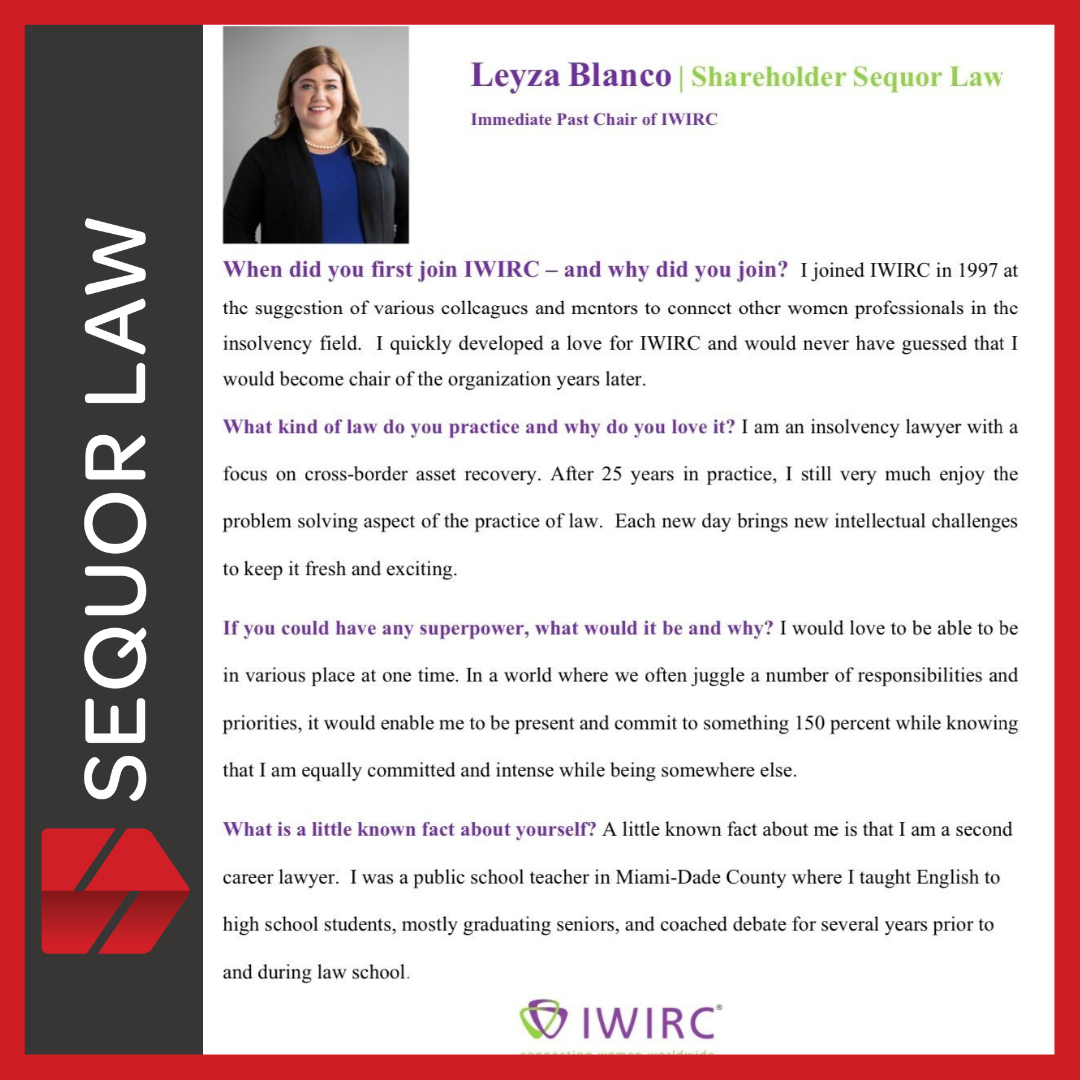
In a unanimous decision, the U.S. Supreme Court held that two arbitration tribunals—one private and one investor-state—did not constitute “foreign or international tribunal[s]” under 28 U.S.C. § 1782. The statute is widely used by litigants to obtain discovery “for use in a proceeding in a foreign or international tribunal.” The decision came after years with a split among the Courts of Appeals on the issue, particularly in the area of international private arbitration.
In its 17-page decision, the Court analyzed the language of the statute and its history noting that § 1782’s purpose is comity. The Court reasoned that a broad reading of §1782 “would open district court doors to any interested person seeking assistance for proceedings before any private adjudicative body—a category broad enough to include everything from a commercial arbitration panel to a university’s student disciplinary tribunal.” Opting for a narrower construction, the Court held that “only governmental or intergovernmental adjudicative bodies constitute a ‘foreign or international tribunal’ under § 1782”, adding that, “[s]uch bodies are those that exercise governmental authority conferred by one nation or multiple nations.”
More on the decision can be found here.





